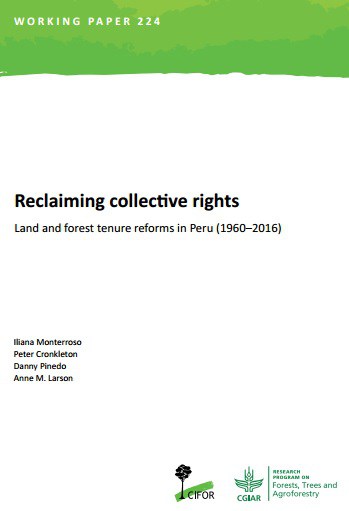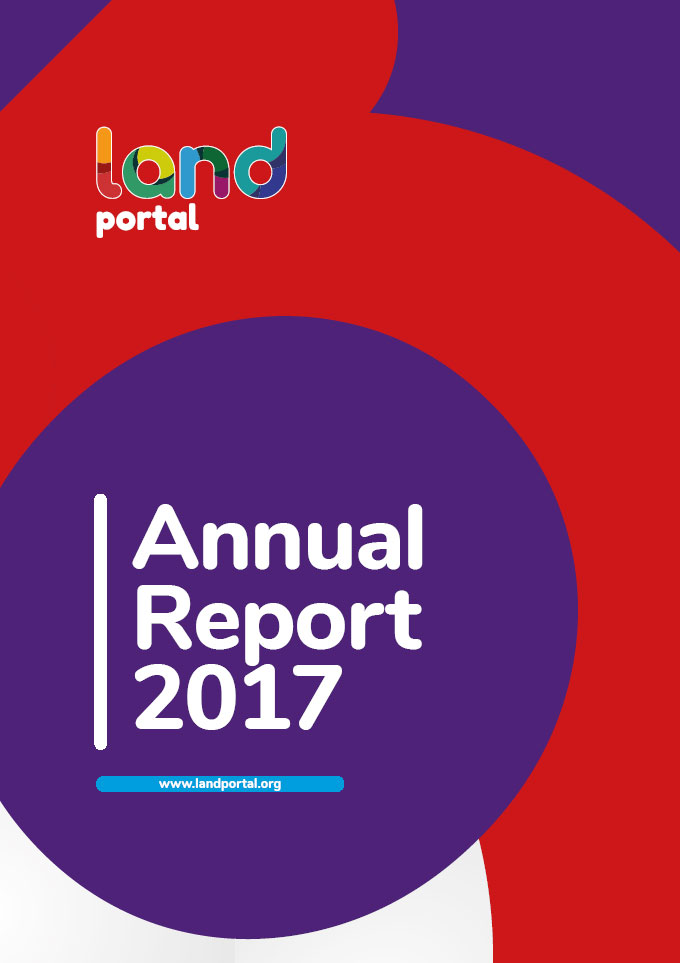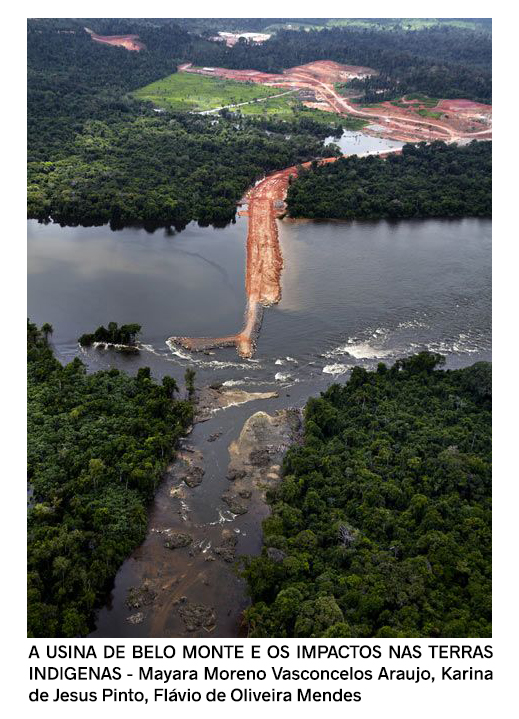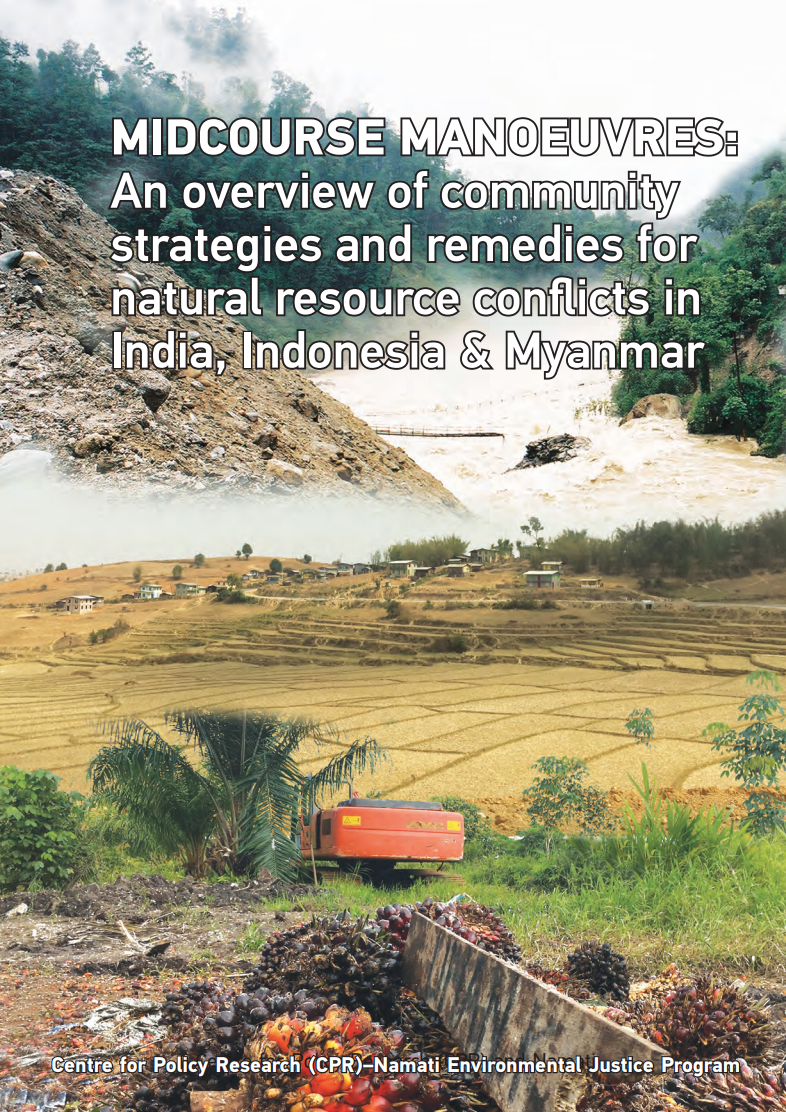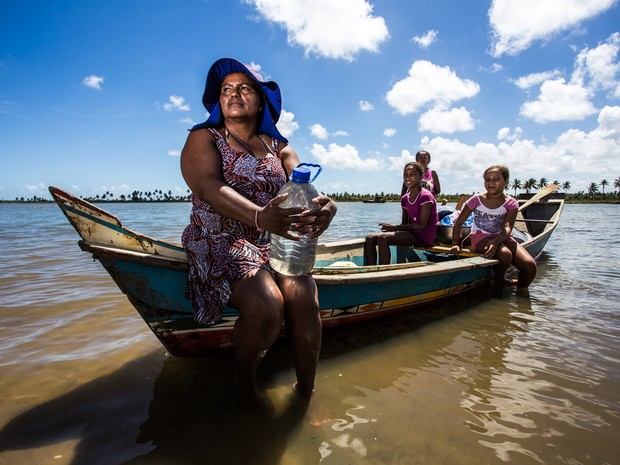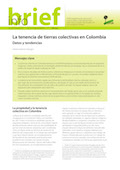Reclaiming collective rights Land and forest tenure reforms in Peru (1960–2016)
Peru has formalized property rights for 1,200 indigenous communities in the Amazon. These titled indigenous lands cover over 11 million hectares and represent approximately 17% of the national forest area. Progress has been possible due to multiple reforms that recognized indigenous rights to collective lands, a process characterized by complex and protracted conflicts among competing interests, shifting government priorities and continued resistance by indigenous people to contest efforts that undercut their interests.

